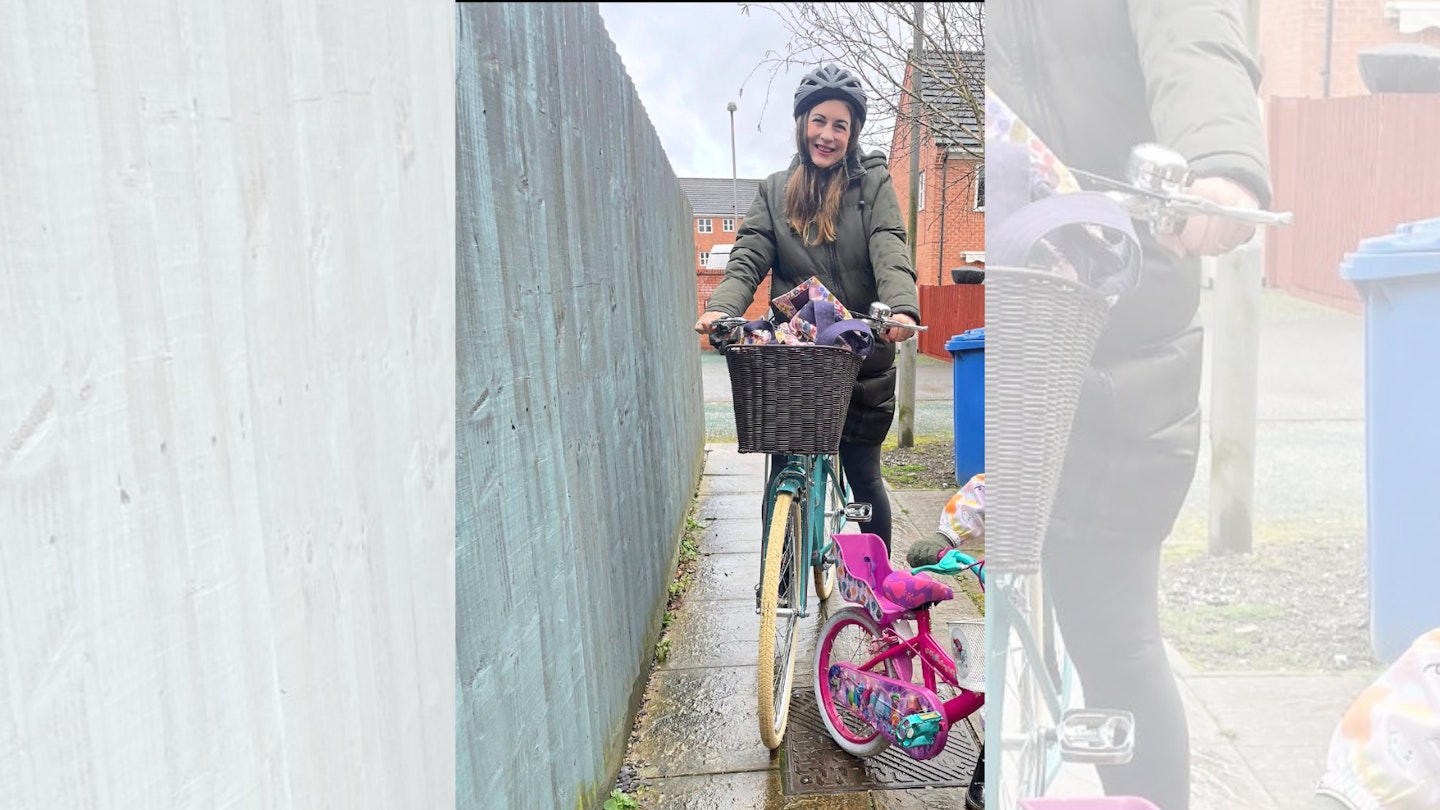Over three-quarters of Brits feel they are greener than they were 10 years ago. Take a Break speaks to one mum who has made a difference with a few easy steps...
Before the pandemic, Emily Latham rarely thought about her impact on the environment, aside from the recycling bin in her kitchen.
Now, three years on, the mum of two grows her own food, makes her own cleaning products and walks and cycles instead of using her car.
Mum-of-two Emily, 39, from Derby, says, “I didn’t intend to become so green during the pandemic. It started off with thinking of ways to entertain the kids, so growing our own veg seemed like a fun idea. I followed a few accounts on Instagram for gardening tips, and it opened up a new world of how to live a more eco-friendly lifestyle. It’s now become a way of life.”
Over three-quarters of Brits believe they are living greener lifestyles than they were 10 years ago – with recycling and shopping with reusable bags the top green habits that have increased in the last decade.
The number of people using reusable water bottles has more than doubled over the past 10 years, from 16 per cent to 39 per cent, and 32 per cent of Brits are now eating less meat compared to just 16 per cent a decade ago. The average adult typically carries out 369 eco-friendly acts a year – more than one per day – compared to just 286 a year a decade ago.
Emily, who lives with her husband, Sushil, and children, Zevi, seven, and Edie, four, was already vegan for animal welfare issues before the pandemic. But when the country locked down, she started thinking of ways to keep her children busy.
She says, “I thought planting vegetables, like cauliflower and beetroot, would be fun and educational. I started scrolling through Instagram for tips on how to live more sustainably. I was struggling to get food at the supermarket – queues were so long, and shoppers were stockpiling, so I found a local company delivering organic veg. I was throwing away much less food as I was conscious of not making more trips to the shops than necessary.”
With everyone at home 24/7, Emily’s veganism soon caught on. She says, “When Sushil was at the office, he’d grab a meal deal, but now we’re eating solely plant-based.”
She adds, “I also started looking at my beauty routine, swapping disposable pads and make-up wipes for reusable cotton cloths. I bought solid shampoo and conditioner bars, instead of plastic bottles. My hair’s shinier and you get 10 times the amount of use.
“I’ve also stopped buying tampons – as they use so much plastic – and use a reusable moon cup. I’ve even made my own cleaning products using white vinegar rather than chemicals and we use a laundry egg, which cleans clothes using natural pellets encased in a reusable ‘egg’.”
Emily rarely uses her car. She says, “We walk everywhere we can, or ride our bikes. It’s so easy to make small changes, and they really do make a huge difference. We should all aim to make at least a couple of swaps. It’s important that our kids learn to make better decisions to protect our planet. I want mine to grow up knowing that living consciously has a huge impact on our planet – look after it so, in turn, it can look after us.”

Go eco-friendly in 10 simple steps
Go digital
The more you do online, the less you need paper. Think about whether you can send emails instead of letters or if you need to print files or if you can save them on your computer.
Switch off lights
It’s one of the simplest ways to reduce energy consumption! Open curtains and blinds to make the most of natural light.
Reuse before recycling
Before recycling, see if you can reuse items first. For example, can you reuse as scrap paper for note-taking or shopping lists, or use jam jars for storage?
Buy pre-loved items
Instead of buying new clothes, try shopping second-hand. And if your clothes have a tear in them, think about repairing rather than chucking away.
Eat plant-based
Eating less meat helps reduce your impact on the environment. Try cooking at least one plant-based meal per week. Pick food in season, when it’s often cheaper. Try an app like Olio to swap food items with neighbours.
Switch energy providers
The UK now generates more electricity from renewable sources, like solar and wind power, than from fossil fuels. Switch to clean power by using a renewable energy provider. Visit bigcleanswitch.org for info.
Plan your errands
Work out what needs to be done and plan to do all your errands in one day using the most efficient route. This saves you money, time and is a very simple way to go green.
Save water
Only use as much water as you need when it comes to boiling kettles, having showers etc. Dual-flush toilets and water-saving devices for toilet cisterns reduce bills too.
Green your commute
Car share, use public transport, walk or ride a bike. This often provides a great chance to integrate with the community or get to know your colleagues better too.
Pack your own lunch
Taking lunches to work in reusable containers is green and healthier. Buying lunches means packaging waste and is way more expensive!
● WWF’s online carbon footprint calculator is a great way to find out how to reduce your footprint. Visit footprint.wwf.org.uk
